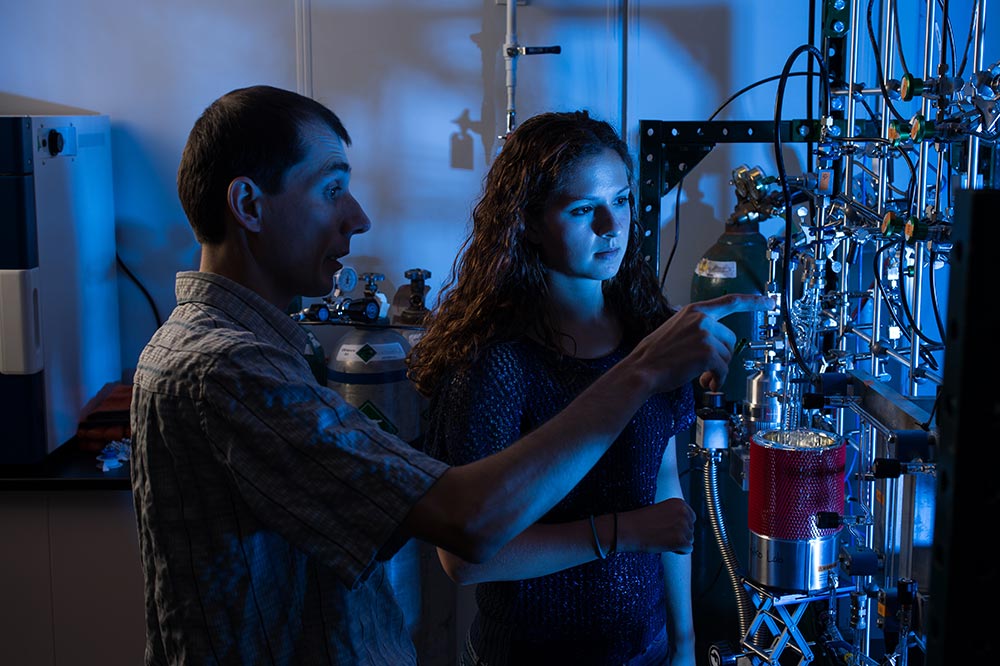As most of you may know, the University of Rochester is classified as an R1 Doctoral University—otherwise known as a tier 1 research university—by the Carnegie Classification of Institution of Higher Education. R1 universities “provide a lot of resources for research and have a lot of people conducting research at their respective institution.”
Hence, a typical question I often get from first year students is how to get involved in research at Rochester.
Don’t worry about it right away
For starters, as a first semester first year, you do not need to worry about being involved in research as soon as possible! I find that some first years—especially those who are applying to graduate school—get very anxious that they are not involved in research within their first semester. However, in reality, it is very difficult to get a research position as a first semester first year. The majority of professors will ask you to wait and apply for a position in your spring semester, so you can complete your core courses and be knowledgeable enough to work in the lab.
In this case, I would advise first-year students to focus on building a strong foundation and earning good grades in core courses. As a whole, your first semester your first year should not be stressful in terms of outdoing yourself with academics. You are adjusting to a completely different environment, constantly meeting new people, and trying new things. This is often the first time people are away from their parents, and are not used to this level of “freedom.” Hence, in order to succeed and do well in your later semesters, you need to focus on yourself your first semester and properly adjust to things.
Starting second semester, you can start to seriously become involved with research. Most people get involved between their second semester of their first year and the end of their sophomore year.
Use campus resources
Two key campus resources that students should be aware of when it comes to research is the Office of Undergraduate Research and the Fellowships Office. I would strongly suggest all first years who are even remotely interested in becoming involved with research or pursuing a fellowship to make an appointment. The Office of Undergraduate Research helps students connect with professors and explores different avenues of research, especially with the labs at Strong Memorial Hospital. The Office of Undergraduate Research also offers summer research grants that can be used for the research project itself, or to help pay for housing and transportation. They will also assist with helping those who have been awarded a Research and Innovation Grant (RIG) in properly allocating and using their funds. These offices single handedly helped me become heavily involved in research.
Contact professors
Speaking from my personal experience, I found the best way to become involved in research is to be very proactive by reaching out and emailing professors. My research experience began the summer after my first year. With the help of the Fellowships Office, I was awarded the Wallace-Carver Fellowship and given the opportunity to work in a USDA chemistry laboratory. This was a good learning experience, because I learned that though I liked the idea of research, I really did not enjoy working in this type of laboratory setting.
The next semester, I became involved in anthropology and media research. I was given the Discover Grant, which allowed me to spend my summer in China researching the conceptualization of blackness and the influence of media within this understanding. This was a self-driven project that began with researching the UR faculty and staff and seeing who would be knowledgeable in this subject area. I had created my own research draft, then sent multiple emails to various professors asking if they could oversee my work. I was able to add this research as an independent study and continue on with my work the following semester. It’s very common to add independent studies, especially during one’s junior and senior years.
Yet, the most standard way I have found to get involved is to simply browse through various departments that you are interested in and email the professor, asking if they would be open to the possibility of having you as an undergraduate researcher and to meet during their office hours. This is how I came to my current research position in computer science and media studies. I wanted something that was interdisciplinary, and combined my interests in race theory and computer science well. Once again, with help from the Office of Undergraduate Research, I was able to find a lab at a different university I was really interested in. I ended up emailing back and forth with the lab, and after a couple of virtual meetings, I became involved in the lab.
Take a research course
I became involved in my next research project by actually taking a research course in anthropology. In this course, I was a student researcher for the Rochester Decarceration Research Initiative. The focus of the work was to “understand how the presence of correctional facilities in the Rochester region shapes socio-cultural, political, and economic life in the area.” I encourage individuals to look through various classes on CDCS and see if a research course is offered for the subject they are interested in. Similarly, you can check your majors email list and meet with the undergraduate coordinator to see if any professors are looking for undergraduate research assistants. This is common in computer science, especially for summer research work.
Overall, I would encourage everyone to get involved in research. I started out strongly disliking research, but now I absolutely love it. Every field has a different type of research pedagogy, and it’s important to take advantage of Rochester’s diverse learning environment and to explore various research interests. I hope that my experience and advice was helpful, and I wish you best of luck with your research experience!

